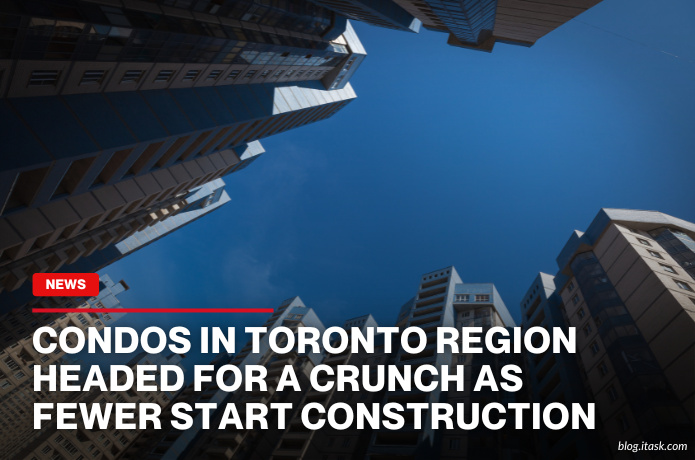Condos in Toronto region headed for a crunch as fewer start construction
Condos in Toronto region headed for a crunch as fewer start construction

Toronto’s condo market is facing a serious slowdown, with fewer new projects starting construction. This trend is raising concerns about a potential housing crunch in the region.
In the first half of 2024, sales of new condo units in Toronto dropped by more than half compared to the same period the previous year, marking the slowest pace in 27 years. This sharp decline is largely due to rising interest rates, which have made mortgages more expensive and deterred both investors and first-time buyers. Without enough pre-sales, developers struggle to secure financing to begin construction, leading to fewer new condos being built.
The slowdown is particularly evident in pre-construction sales, which are crucial for funding new developments. Traditionally, investors purchase these units early, providing developers with the capital needed to start building. However, high borrowing costs and uncertain market conditions have made investors hesitant. As a result, many planned projects are stalled, and the supply of new condos is not keeping up with demand.
This situation is exacerbating Canada's housing crisis. Despite government efforts to make housing more affordable, such as introducing longer mortgage amortization periods for first-time buyers, these measures have had limited impact. The lack of new condo construction means that supply is not meeting the needs of a growing population, particularly in urban centers like Toronto.
The challenges are not limited to new projects. Existing developments are also facing difficulties. For example, the One Bloor West project, a high-profile luxury condo development in Toronto, was placed into receivership in October 2023 due to over $1.6 billion in unpaid debt. Such instances highlight the financial risks developers face in the current market.
If the trend continues, Toronto could face a significant shortage of condos in the coming years, driving up prices and making homeownership even less attainable for many residents. Addressing this issue will require coordinated efforts from policymakers, developers, and financial institutions to create conditions that encourage new construction and meet the housing needs of the city's growing population.
